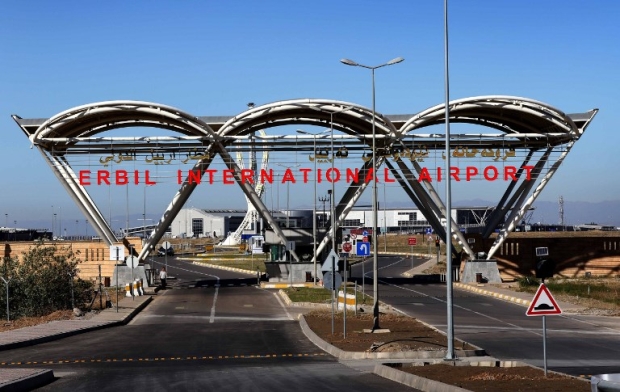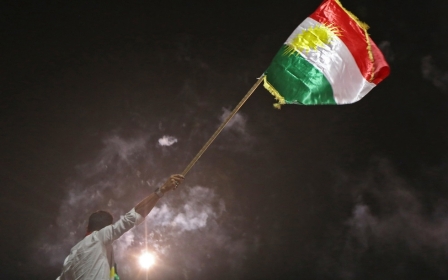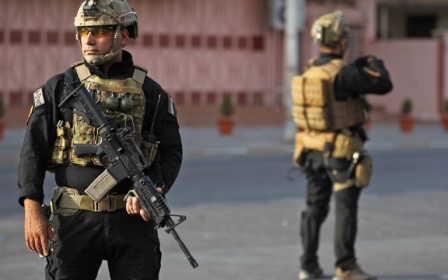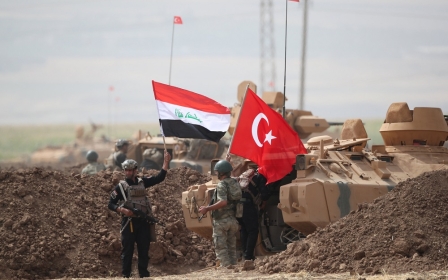Iraq MPs back sending troops to Kirkuk, as airlines suspend flights to Erbil
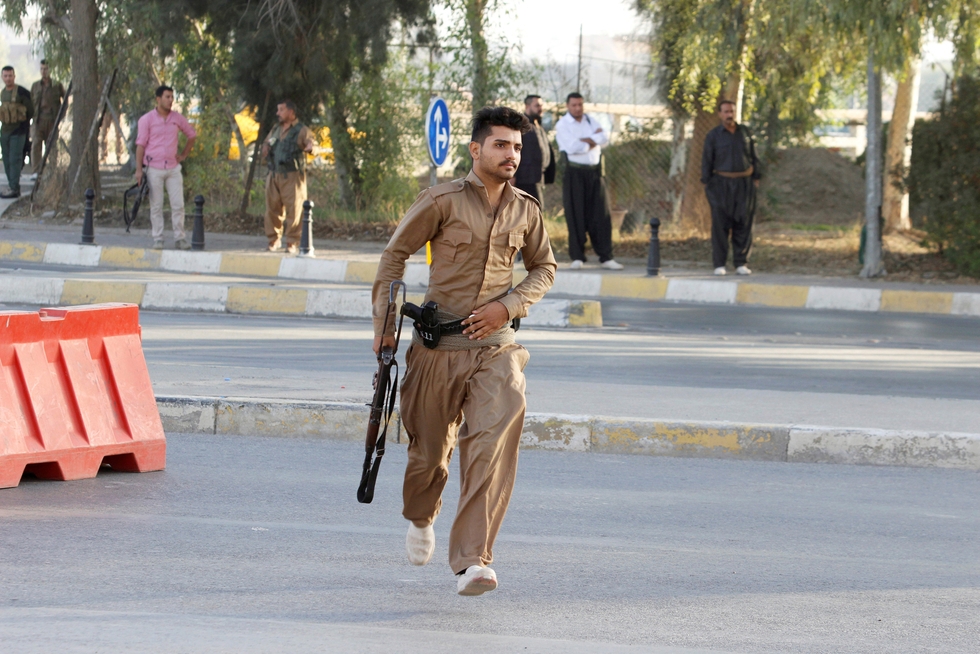
The Iraqi parliament has given a mandate to Haider al-Abadi for the deployment of troops in the disputed oil region of Kirkuk, after Kurdish troops were told to withdraw from contested areas.
The prime minister also demanded that Kurdish authorities "cancel" the outcome of the independence referendum in northern Iraq, as a condition for dialogue to resolve an escalating crisis.
Kurdish Pehsmerga fighters took control of Kirkuk, a multi-ethnic region, in 2014 when the Iraqi army fled in the face of IS militants who overran about a third of Iraq.
The Kurdish move prevented the oilfields from falling into the militants' hands.
The area, historically claimed by the Kurds, is also home to Turkmen and Arab communities. The Kurdistan Regional Government (KRG) included it in the independence referendum held on Monday.
In a speech to parliament, Abadi renewed his ultimatum to Massoud Barzani's KRG to hand over control of international airports by Friday or face a ban on direct international flights to the Kurdish region. Separately, Iraq on Wednesday sent a top-level delegation to Tehran to "co-ordinate military efforts".
People in northern Iraq voted overwhelmingly in favour of independence in Monday's non-binding referendum. Any idea of secession is bitterly opposed by the governments in Baghdad, Turkey and Iran. The United States pressed Kurdish leaders to call off the poll.
"We won't have a dialogue about the referendum outcome," Abadi told parliament. "If they want to start talks, they must cancel the referendum and its outcome."
Airlines suspending flights to Kurdistan
His demand was rejected by KRG Transport Minister Mowlud Murad on Wednesday. He told a news conference in the Kurdish capital Erbil that keeping control of airports and maintaining direct international flights to Erbil was necessary for the fight against Islamic State militants.
Murad expressed the hope that the crisis could be resolved by Friday, saying it would damage Kurdistan's economy.
But Turkish airline Pegasus announced on Wednesday it would immediately suspend flights into Erbil, the capital of Iraqi Kurdistan, according to local media reports.
Lebanese carrier MEA and Egypt's flag carrier EgyptAir also announced they would suspend flights from Friday.
"For now, we're stopping. The last flight is on the 29th, until they solve the issue," MEA chairman Mohammad al-Hout told Reuters on Wednesday.
Two company sources from EgyptAir confirmed the decision.
The Iraqi Civil Aviation Authority sent a notice on Wednesday to foreign airlines telling them international flights to Erbil and Sulaymaniya in the Kurdish region would be suspended on Friday at 1500 GMT and only domestic flights allowed.
Baghdad last week asked foreign countries to stop direct flights to the international airports of Erbil and Sulaymaniyah, in KRG territory, but only Iran declared such an air embargo, halting direct flights to Kurdistan.
Turkey's border remains open, for now, minister says
Turkey's border with northern Iraq remains open, although that does not mean it will remain open, the Turkish customs minister said on Wednesday, adding the number of trucks passing through the border had decreased.Bulent Tufenkci, who was speaking on live television, also said he did not believe that the developments in northern Iraq would have a big impact on Turkish trade.
President Tayyip Erdogan has said Iraqi Kurds would go hungry if his country halts the flow of trucks and oil across the border, warning that Turkey could take military and economic measures against its neighbour after the 25 September referendum on Kurdish independence.
New MEE newsletter: Jerusalem Dispatch
Sign up to get the latest insights and analysis on Israel-Palestine, alongside Turkey Unpacked and other MEE newsletters
Middle East Eye delivers independent and unrivalled coverage and analysis of the Middle East, North Africa and beyond. To learn more about republishing this content and the associated fees, please fill out this form. More about MEE can be found here.


